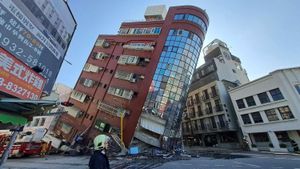Mexico is gearing up for the arrival of thousands of deported migrants from the United States as the new administration under President Trump initiates mass deportation programs. Starting January 20, reports from various Mexican authorities indicate preparations are underway to provide shelter, medical assistance, and basic amenities for those affected by these policies.
Key locations across Mexico, particularly along its northern border, are activating shelters to accommodate this influx. Among these is the Vida Plena, Corazón Contento shelter located in Hermosillo, which is currently prepared to house 100 individuals. Ileana Cristina Soto Esquivel, coordinator of the shelter, mentioned the challenges faced during previous caravans where facilities lacked capacity. "La iglesia que funciona como albergue, tiene una capacidad máxima para 100 personas y sus huéspedes tendrán acceso a dos baños con tres regaderas," Soto added, highlighting the need for adequate living conditions.
The mayor of Piedras Negras, Jacobo Rodríguez, conveyed confidence about the city’s readiness. He stated, "La idea es que ningún deportado se quede en Piedras Negras, sino que inmediatamente sean trasladados a los albergues." His municipality is already coordinating efforts with federal authorities to scale up shelter capacities, feeling prepared to handle remnant issues like limited space for migrants without access to the necessary permissions from CBP One, which has been suspended under the current U.S. regime.
Reports indicate the federal government is also actively involved, with new temporary shelters set up at various border points as well. Vicente Joel Hernández Navarro, Secretary of Health for Tamaulipas, mentioned, "Se calcula que del total de deportados el 60, 70% pase por Tamaulipas." He expressed hope for the humane treatment of returning nationals as border officials coordinate with U.S. authorities on the migrants' health conditions before they arrive. "Tenemos unas buenas expectativas de asegurar que nuestros connacionales sean tratados respetando sus derechos humanos," he affirmed.
Aside from physical space, organizations like Vida Plena are mobilizing volunteers to assist with health assessments and basic needs. They plan to provide food, hygiene packages, and assistance with administrative matters concerning the deportees. Despite their best efforts, the possibility of thousands arriving simultaneously raises concerns about overcrowded conditions, especially with reports of older shelters being overwhelmed during prior migrations.
Meanwhile, additional support is being extended through mental health resources for the deported individuals as they return to Mexico—many of whom have established lives and families across the border. Gilma Alcocer, Chief of the Third Health Jurisdiction, noted, "Claro que esta gente viene afectada, verdad, tiene toda una vida allá," underscoring the need for mental health support, especially as individuals may experience trauma or stress upon reintegration.
With all these measures, the Mexican government and local organizations are striving to create safe environments for those returning home, hoping to maintain their human dignity. While challenges loom large, such as the sheer numbers expected and the logistics of their care, localities are optimistic about their readiness to serve. Volunteering initiatives are on the rise as communities come together to assist individuals with donations of clothing and essentials.
Overall, the situation remains fluid, with preparations intensifying daily as the potential for massive deportations grows. Mexican authorities are hopeful for successful transitions for these individuals as they return to their homeland amid a controversial immigration climate across the border.
Efforts continue to monitor the situation closely, coordinating aid and services, ensuring every deportee is met with compassion and adequate assistance, marking this humanitarian response as not just necessary, but urgent as changes persist.



